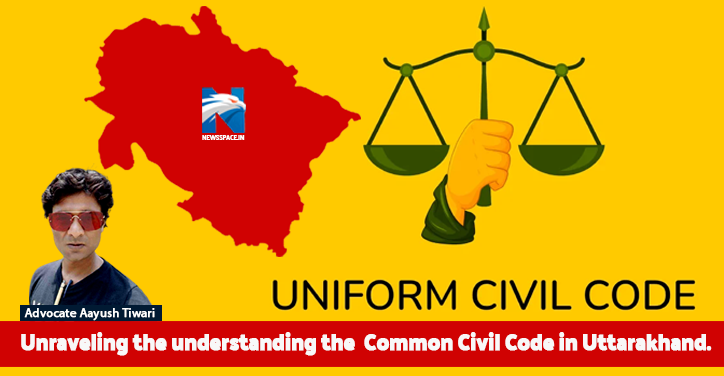
|
Getting your Trinity Audio player ready...
|
The concept of a Uniform Civil Code (UCC) has been a topic of debate and discussion in India for decades. Article 44 of the Constitution of India states that ‘The State shall endeavor to secure for the citizens a uniform civil code throughout the territory of India.’ This provision has been a source of controversy, with some arguing for its implementation to bring about uniformity and equality in personal laws, while others see it as a threat to religious and cultural diversity. Recently, the state of Uttarakhand introduced a Common Civil Code (CCC) for its residents, which has further added to the confusion surrounding these codes. Additionally, the ideology of communism has also been linked to the implementation of a UCC. In this essay, we will discuss the differences between a UCC and CCC, address the concerns and criticisms surrounding their implementation, and analyze the role of communism in this debate.
Uniform Civil Code vs. Common Civil Code
A UCC is a set of laws that apply equally to all citizens regardless of their religion, while a CCC is a set of laws that apply to all citizens of a particular state, irrespective of their religion. The UCC aims to bring about uniformity and equality in personal laws, particularly in matters of marriage, divorce, inheritance, and adoption. The CCC, on the other hand, seeks to address the diversity in personal laws within a state and provide a common set of laws for all its citizens.
CM Dhami’s decision to introduce a CCC has been met with mixed reactions. Some argue that it is a step towards implementing a UCC in the country, while others see it as a violation of the state’s autonomy and a threat to minority rights. It is important to note that while a UCC would be applicable to the entire country, a CCC is limited to a particular state and does not necessarily reflect the views and needs of the entire nation. Therefore, it is crucial to understand the differences between these codes and the implications of their implementation.
One of the major concerns surrounding the implementation of a UCC or CCC is the violation of religious and cultural rights. Personal laws in India are based on religious and cultural practices, and any attempt to impose a uniform set of laws may be seen as an attack on these beliefs. Additionally, there are concerns that a UCC or CCC may not adequately address the complexities and nuances of personal laws and may not be applicable to all communities equally.
The most lethal fear rotating around the topic is a lesson from history : that is when Lenin and Stalin tried to implement Carl Marks Communist Manifesto ( Das Kapital) in the soviet union, post the red revolution. After the coup on the Tzar of USSR amidst the World War , LENIN himself tried to implement the Marxian ideology in it’s veracity. And it’s horrendous results as Joseph Stalin rose to power still makes that era if steel the most gruesome episode in modern history.
It is said Mussolini bathed in ponds of blood, Hitler in rivers of blood while Stalin made oceans out of human blood. The atrocities committed in Siberia and the labour camps of Ukrain in that era still makes Stalin history’s most hated villain. Therefore it is a question if brainstorming at war level before we start playing with these legal jargons, these constitutional jargons like secularism, socialism, UCC and CCC.
Another criticism of a UCC and CCC is that it may lead to the imposition of a dominant culture and undermine the diversity and pluralism of Indian society. This may also result in the loss of identity and autonomy for minority communities. Furthermore, there are concerns that the implementation of a UCC or CCC may be used as a tool for political gain and may not truly serve the interest of the citizens.
Communism, as an ideology, advocates for a classless and egalitarian society. It rejects the idea of private property and promotes the collective ownership of resources. Some argue that the implementation of a UCC or CCC aligns with the principles of communism, as it seeks to bring about uniformity and equality in personal laws. However, others argue that the imposition of a uniform set of laws goes against the fundamental principles of communism, which advocates for diversity and autonomy.
Therefore in conclusion, the confusion surrounding the UCC, CCC, and communism can be attributed to the differing perspectives and interpretations of these concepts. While a UCC aims to bring about uniformity and equality in personal laws, a CCC seeks to address the diversity within a state. The implementation of these codes raises concerns about the violation of religious and cultural rights, loss of identity and autonomy, and the politicization of the issue. As for the role of communism, it is a complex and multifaceted debate that requires further examination. However, it is important to recognize the need for a comprehensive and inclusive dialogue on this issue, taking into account the diverse opinions and interests of all stakeholders. Only then can we hope to find a resolution that upholds the principles of justice, equality, and diversity, which are the cornerstone of a democratic society.





